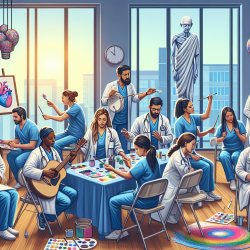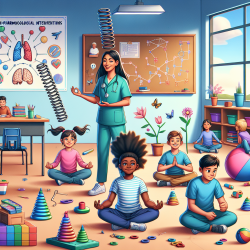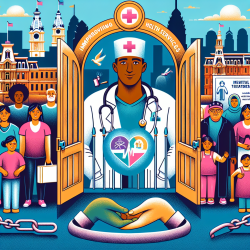In the evolving landscape of medical education, the integration of arts into palliative care training is gaining traction as a transformative approach to nurturing empathy and patient-centered decision-making among future physicians. A recent study titled "Palliative Care and the Arts: Vehicles to Introduce Medical Students to Patient-Centred Decision-Making and the Art of Caring" sheds light on this innovative educational method.
Why Palliative Care and Arts?
Palliative care is often misunderstood as merely end-of-life care. However, it encompasses a broader spectrum focused on enhancing the quality of life for patients with serious illnesses. The study conducted at the University of Navarra highlights how incorporating visual arts into palliative care education helps dispel misconceptions and fosters a holistic understanding of patient care.
The course described in the research was held in an art museum, leveraging the reflective nature of art to encourage students to view patient care from multiple perspectives. This setting provided a unique learning environment that emphasized empathy, compassion, and the importance of individualized care plans.
Key Outcomes of the Study
- Enhanced Understanding: Students gained a deeper appreciation for the multifaceted nature of decision-making in palliative care settings.
- Empathy Development: The integration of arts facilitated a re-conceptualization of relationships with patients, emphasizing empathy and compassion.
- Holistic Care Approach: Students learned to value patients' physical, emotional, and spiritual needs, leading to more comprehensive care strategies.
- Interprofessional Collaboration: The course modeled teamwork by including faculty from diverse disciplines such as medicine, nursing, sociology, and psychology.
The Role of Arts in Enhancing Medical Education
The use of visual arts in medical education is not entirely new but remains underexplored. Art offers a non-verbal medium that encourages students to engage with complex human emotions and experiences. In this course, art served as a catalyst for discussions about dignity, hope, and patient-centeredness—core components of effective palliative care.
Students reported that art helped them appreciate multiple perspectives and fostered an open-minded approach to patient interactions. This aligns with findings from other studies that suggest arts-based programs can enhance observational skills and empathy among medical professionals.
Implications for Practitioners
For practitioners looking to enhance their skills in patient-centered decision-making, incorporating elements of art into their practice could be beneficial. Whether through reflective exercises or interdisciplinary collaboration, the principles outlined in this study can be adapted to various educational settings.
The success of this course suggests that similar programs could be developed for interprofessional audiences, addressing competencies common across healthcare professions while respecting each discipline's unique contributions.
Encouraging Further Research
The study underscores the need for further research into the specific contributions of different learning methods used in medical education. As healthcare continues to evolve towards more holistic approaches, understanding how arts can enhance medical training will be crucial.










